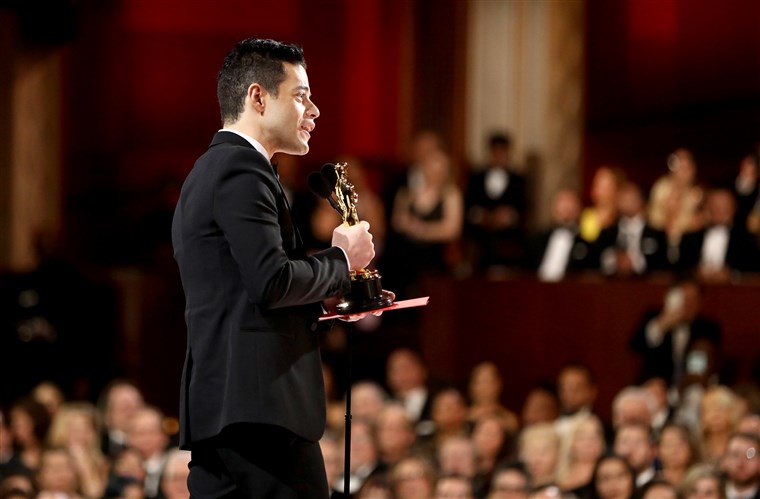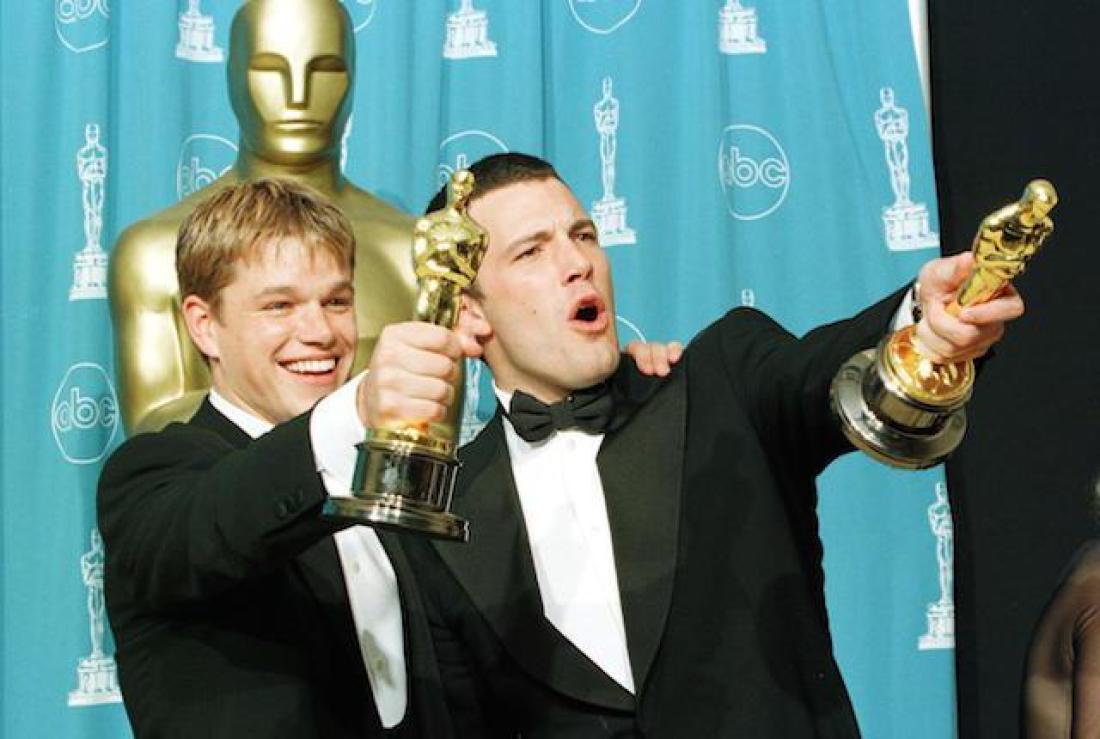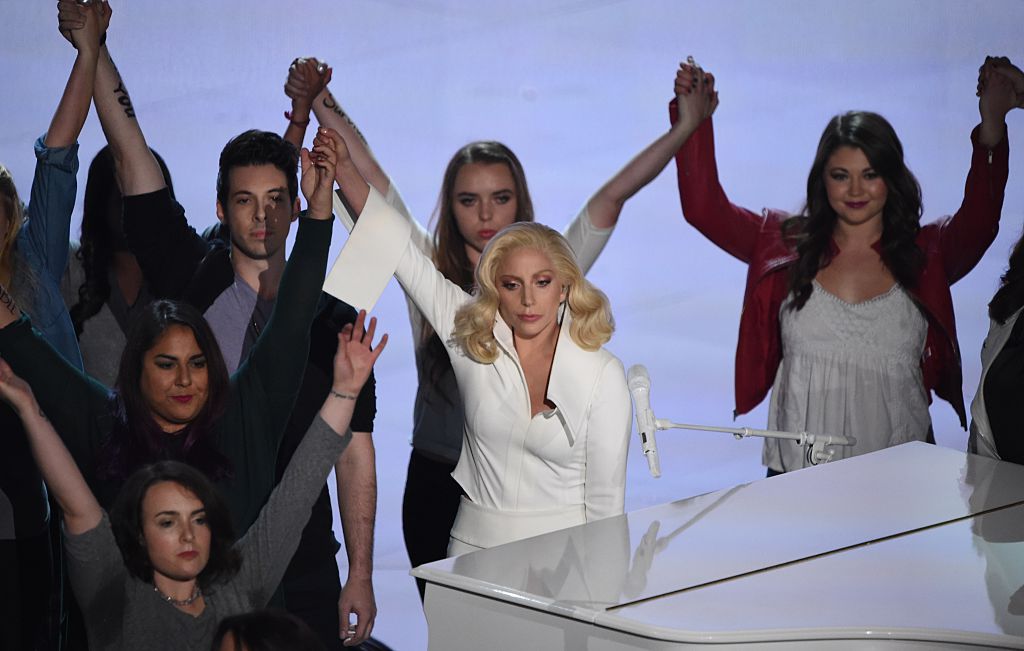On Monday, a couple of people you know from work watched as the 91st Oscars Ceremony spent three hours pleading with us to take it seriously.

In a host-less tour of the “finest” films of 2018, the Academy Awards failed to shake its struggling self-image, leading us to wonder whether there is still a space for an award system that has spent years making a little gold man a bankable bestower of “prestige”.
Not so long ago, you could confidently call the Academy Awards “Hollywood’s Big Night” without the need to follow such a declaration with an immediate eye-roll. In 1998, there were 57 Million people (including a three-year old me working through some confusing feelings for Leonardo DiCaprio) who watched Titanic sweep the Oscars; a far cry from the 22 million people who tuned in last year to watch “What’s his name” win the award for “Something or other”.
Even in 1999, when Shakespeare In Love beat out Steven Spielberg’s Saving Private Ryan for Best Picture, any debate that attacked the Academy’s choice held the implication that Best Picture was still something prestigious enough to be fought over.
The Academy’s most recent decision to award Best Picture to another divisive winner in Green Book has prompted its own fair share of critical debates and twitter-sphere attacks. But there is a lethargy to these debates that speaks to a new development in the waning prestige of the Academy.

The prestige of the Oscar’s trophy has always been a carefully constructed cornerstone of the Academy’s brand. Over the years, the Academy Awards has sought to convince us that stepping onto the shimmering stage of the Oscars and receiving that allusive “Academy Award Nominated” or “Oscar Winning” prefix translates into clear economic and cultural profits. With a golden trophy in hand, struggling movies like Moonlight get a box-office boost, actors get Buzzfeed-approved pop-culture relevancy and cinematographers might get something…maybe.
But the prestige of the Academy awards is a trick of the light; it’s as much a result of well-placed marketing as it is the profitability of having your name read out to millions of people world-wide – and this trick has lost its lustre.
The #MeToo movement revealed this prestige, no matter how slippery it is to define, as the cornerstone of a system of power that enabled abuse to go unopposed for years. The prestige of Oscar glory gave Harvey Weinstein a platform through which he could misuse his influence. The resulting exposure of Harvey Weinstein left a space in the Academy Awards that was sadly far too noticeable, bringing ongoing discussions of bigotry in the film industry to the feet of the Oscars.

Historically, the Academy has responded to political controversies like #MeToo by focusing on a more palatable belief in the “power of movies”. In the wake of 9/11, Tom Cruise used the Academy Awards to remind us that film is important “now more than ever”. After the assassination of Martin Luther King, Bob Hope closed the 1968 Oscars to hail film as “our most meaningful artform”. And this year, Tom Morello introduced Best Picture nominee Vice with the declaration that “movies can become a part of the conversation of history”.
But in the wake of continuing discussions of sexism, racism and issues of representation in film, the Oscar trophy has been unable to avoid its ties to various political and social systems. Brought face to face with the power of the Oscar’s prestige, the Academy is now engaged in a very public examination of the responsibility of that power (ironically while this power begins to lull).
We’ve consequently had front row seats this year to the Academy’s various attempts to bolster their self-image and re-solidify their prestige. They’ve overhauled their membership, increasing female membership to forty-nine percent, and the representation of people of colour to thirty-eight percent; they famously toyed with the idea of a Best Popular Film category and so offered a veiled attempt to open their doors to Marvel (and to a younger audience); and finally, they attempted —and spectacularly failed— to relegate certain categories to the commercial break.
Interestingly, it became the implicit belief in “Oscars prestige” that made so many people, most of whom had not watched the Oscars in years, oppose the inclusion of this short-lived Best Popular Film category. And it was the acknowledgement of this prestige that also prompted Christopher Nolan, Martin Scorsese and tens of other prominent filmmakers to protest the Academy’s decision to push some awards into the ad break.
Each decision by the Academy Awards is destined to prompt a discussion, and this year the Academy Awards once again emerged as a battleground for critique. But it is in this battleground that we reflect on the value of film. It is these discussions that force us to reflect, and fight for, its continuing development, no matter how chaotic that development may be.
The Oscars will consequently continue to be the backboard onto which we throw our protests, attacks, social commentaries and political activism. And in reflecting these issues back in ways that will always surprise (if not anger), the Academy will continue to gratify, antagonise, and maybe even mobilise its audiences.
Perhaps that is the prestigious role the Academy Awards is destined to play.
Let us know what you think of the current state of the Oscars in the comments below.







